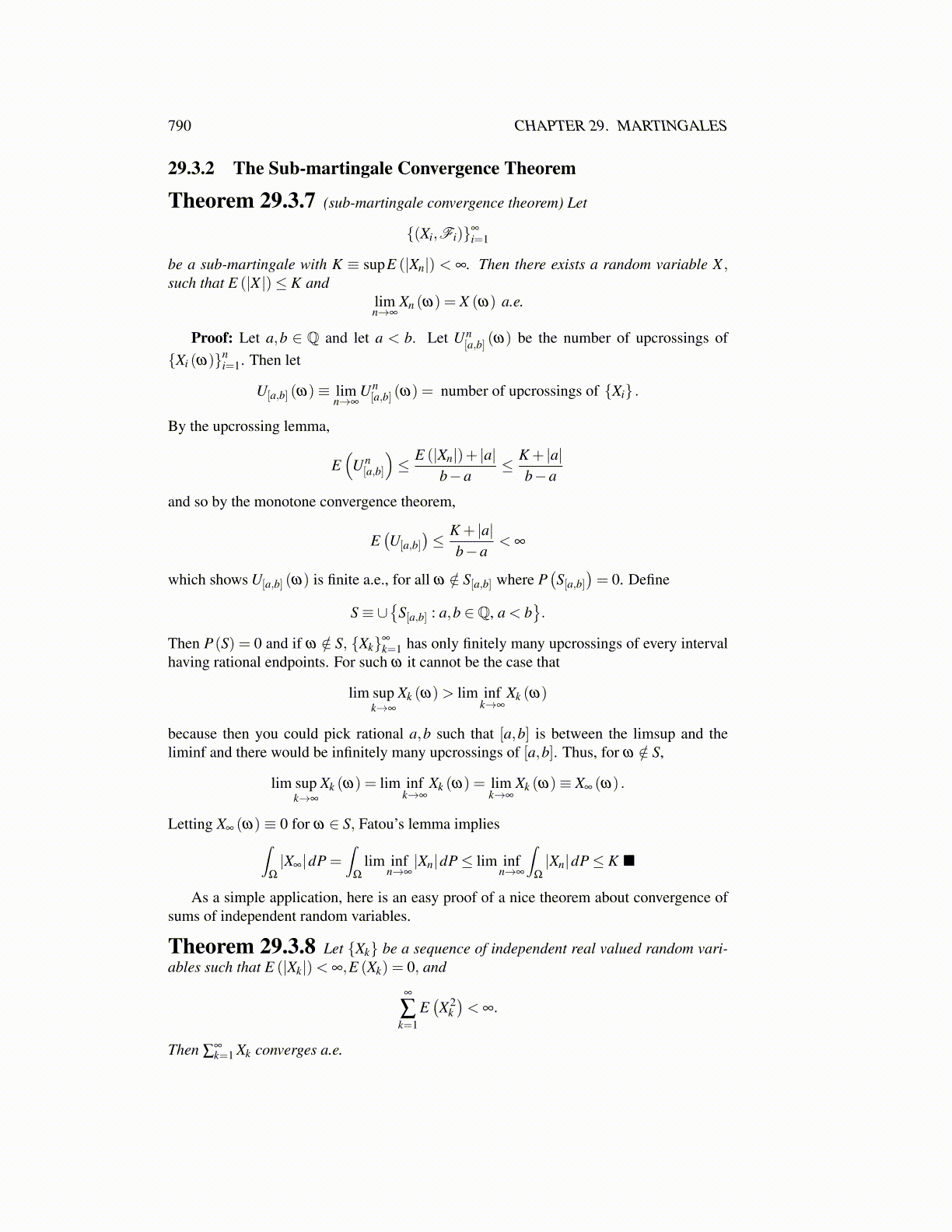
790 CHAPTER 29. MARTINGALES
29.3.2 The Sub-martingale Convergence Theorem
Theorem 29.3.7 (sub-martingale convergence theorem) Let
{(Xi,Fi)}∞
i=1
be a sub-martingale with K ≡ supE (|Xn|) < ∞. Then there exists a random variable X ,such that E (|X |)≤ K and
limn→∞
Xn (ω) = X (ω) a.e.
Proof: Let a,b ∈ Q and let a < b. Let Un[a,b] (ω) be the number of upcrossings of
{Xi (ω)}ni=1. Then let
U[a,b] (ω)≡ limn→∞
Un[a,b] (ω) = number of upcrossings of {Xi} .
By the upcrossing lemma,
E(
Un[a,b]
)≤ E (|Xn|)+ |a|
b−a≤ K + |a|
b−a
and so by the monotone convergence theorem,
E(U[a,b]
)≤ K + |a|
b−a< ∞
which shows U[a,b] (ω) is finite a.e., for all ω /∈ S[a,b] where P(S[a,b]
)= 0. Define
S≡ ∪{
S[a,b] : a,b ∈Q, a < b}.
Then P(S) = 0 and if ω /∈ S, {Xk}∞
k=1 has only finitely many upcrossings of every intervalhaving rational endpoints. For such ω it cannot be the case that
lim supk→∞
Xk (ω)> lim infk→∞
Xk (ω)
because then you could pick rational a,b such that [a,b] is between the limsup and theliminf and there would be infinitely many upcrossings of [a,b]. Thus, for ω /∈ S,
lim supk→∞
Xk (ω) = lim infk→∞
Xk (ω) = limk→∞
Xk (ω)≡ X∞ (ω) .
Letting X∞ (ω) ≡ 0 for ω ∈ S, Fatou’s lemma implies∫Ω
|X∞|dP =∫
Ω
lim infn→∞|Xn|dP≤ lim inf
n→∞
∫Ω
|Xn|dP≤ K ■
As a simple application, here is an easy proof of a nice theorem about convergence ofsums of independent random variables.
Theorem 29.3.8 Let {Xk} be a sequence of independent real valued random vari-ables such that E (|Xk|)< ∞,E (Xk) = 0, and
∞
∑k=1
E(X2
k)< ∞.
Then ∑∞k=1 Xk converges a.e.